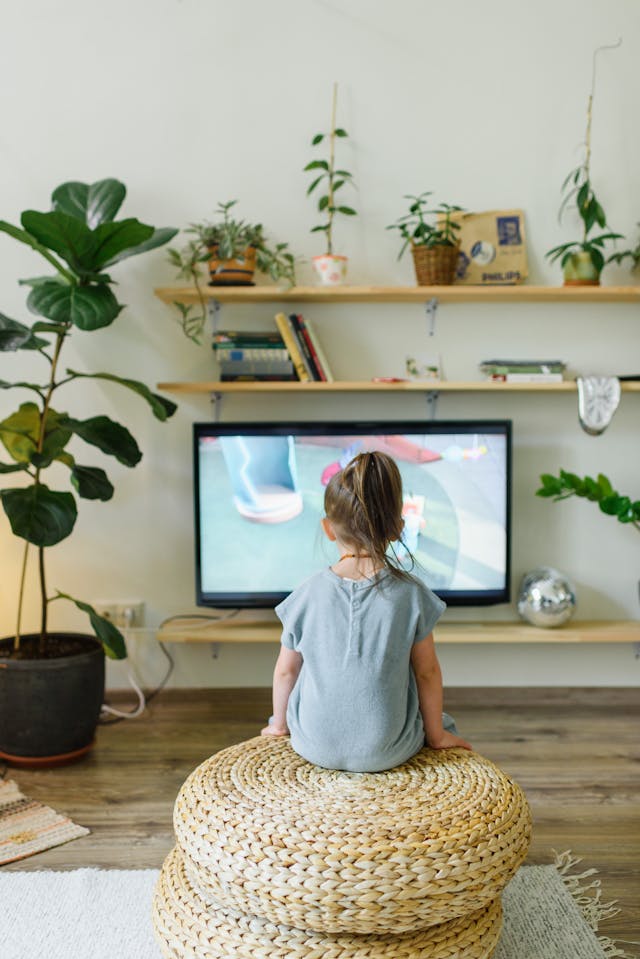In today’s digital age, screens are a ubiquitous part of our lives, offering both convenience and a constant source of information and entertainment. However, for our youngest family members, the allure of brightly colored animations and interactive games can quickly turn into excessive screen time, with potential implications for their development and well-being. As parents and caregivers, it’s crucial to find a balance that allows children to benefit from technology while ensuring they remain engaged in the physical world and continue to develop healthy social and cognitive skills. In this blog post, we’ll explore five effective strategies to help reduce your baby’s screen time, promoting a more active, imaginative, and connected early childhood experience. From keeping devices out of sight to fostering a love for the great outdoors, these tips are designed to help your family embrace a more mindful approach to technology use.
- 1. Embrace Hidden Technology
- 2. Foster Imagination with Simple Toys
- 3. Discover the Great Outdoors to Reduce your Baby's Screen Time
- 4. Create a Predictable Routine
- 5. Encourage Physical Closeness
1. Embrace Hidden Technology
Keep Devices Out of Sight
The old adage “out of sight, out of mind” holds particularly true when it comes to reducing screen time for young children. By storing electronic devices in places your baby cannot see or easily access, you’ll naturally decrease their exposure to screens.
Example
Designate specific areas in your home for technology use, away from common play areas. Use attractive storage solutions to keep gadgets tucked away.
Work-around Solution
Create a family charging station in a private area of the home where all devices are stored overnight, making them less accessible to children during the day.
2. Foster Imagination with Simple Toys
Keep Toys Simple and Open-Ended: Toys that stimulate creativity and imagination without digital components are invaluable for cognitive and physical development. Open-ended toys encourage problem-solving and can be used in a multitude of ways, keeping playtime fresh and engaging.
Example
Blocks, art supplies, dolls, and pretend play sets offer endless possibilities for creative play without the need for screens.
Work-around Solution
Rotate toys regularly to keep interest high. Store some toys out of sight and switch them with others every few weeks to reintroduce them as “new.”
3. Discover the Great Outdoors to Reduce your Baby’s Screen Time
Spend Time Outside: The benefits of outdoor play are vast, including improved mood, physical health, and opportunities for imaginative play. Encouraging outdoor activities can significantly reduce screen time by offering more appealing alternatives.
Example
Plan daily outdoor activities, such as walks in the park, visits to the playground, or backyard exploration.
Work-around Solution
For days when the weather doesn’t cooperate, have a list of indoor locations that offer physical activity opportunities, such as indoor playgrounds or children’s museums.
4. Create a Predictable Routine
Stick to a Routine: Children thrive on routine, and a well-structured day provides less opportunity for aimless screen time. Establishing clear guidelines for when screens are allowed and setting consistent limits can help manage expectations.
Example
Set specific times for screen use, such as 30 minutes before dinner preparation. Use a timer to enforce these limits.
Work-around Solution
Replace potential screen time with engaging routines, like storytime or helping with simple chores, to offer predictability and a sense of involvement.
5. Encourage Physical Closeness
Carry Your Baby: Physical closeness fosters emotional bonding and security, reducing the need for digital distractions. Carrying your baby or toddler in a sling or carrier not only strengthens your bond but also keeps them engaged with the world around them.
Example
Instead of putting on a video while cooking, have your baby in a back carrier where they can watch and interact with you.
Work-around Solution
If carrying isn’t an option, set up a safe, screen-free play area in the room where you are working or relaxing, so your baby can play independently but still feel your presence.
By implementing these strategies, we can offer our children a rich, varied environment that encourages physical activity, creative play, and meaningful interactions. Reducing screen time doesn’t mean eliminating the wonders of technology from our children’s lives but rather ensuring that their exposure is balanced and beneficial. As we navigate the challenges and opportunities presented by the digital age, our goal remains to support our children in developing into healthy, well-rounded individuals with a lifelong love of learning, both online and off.


